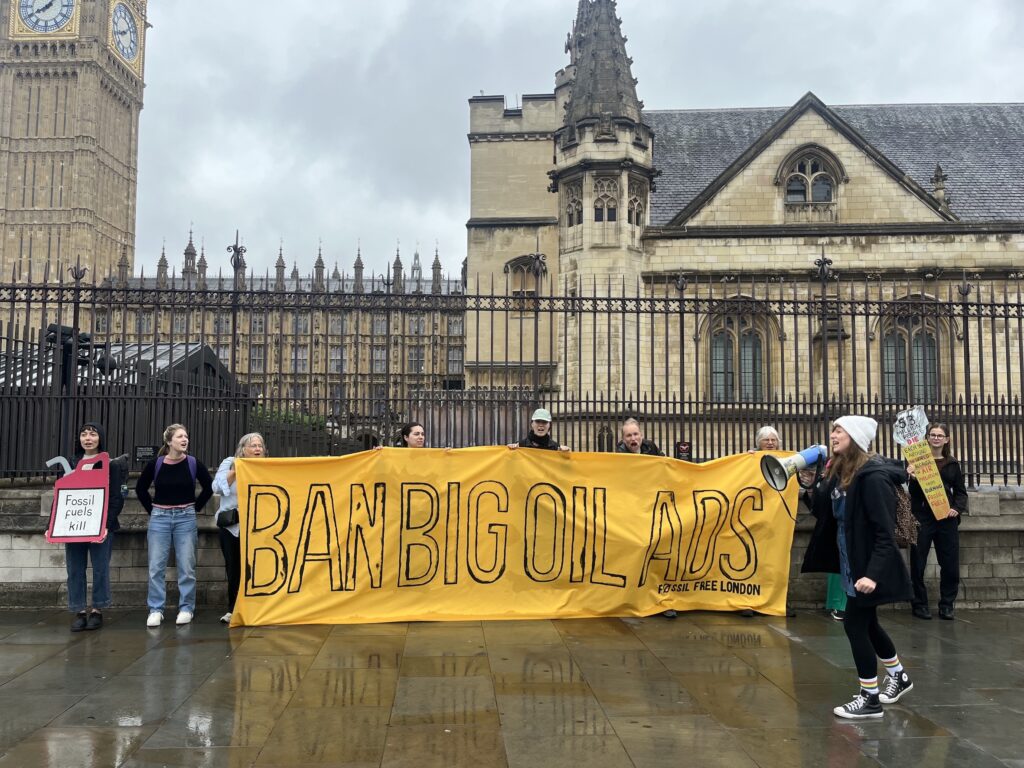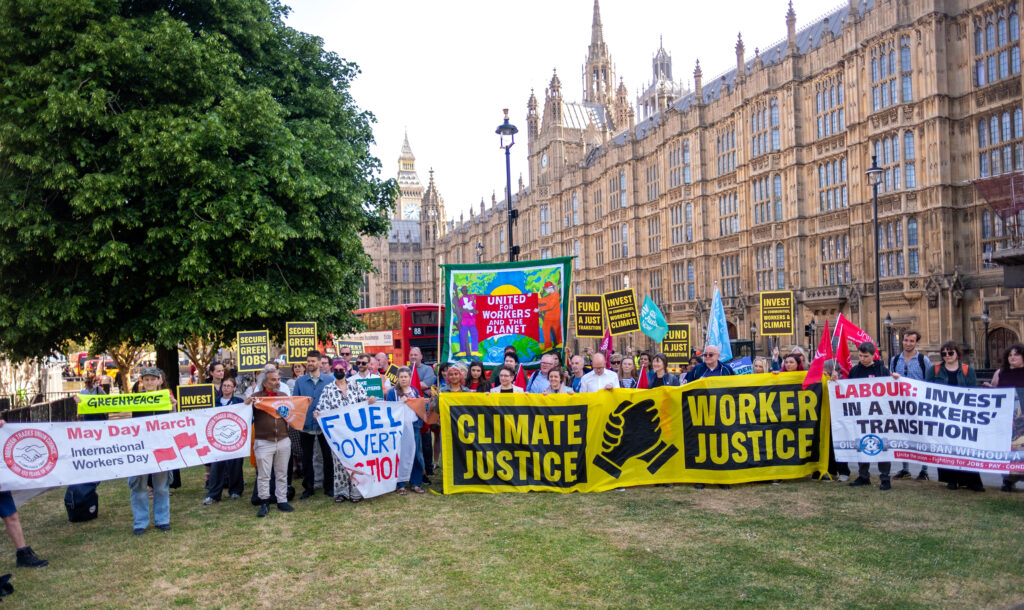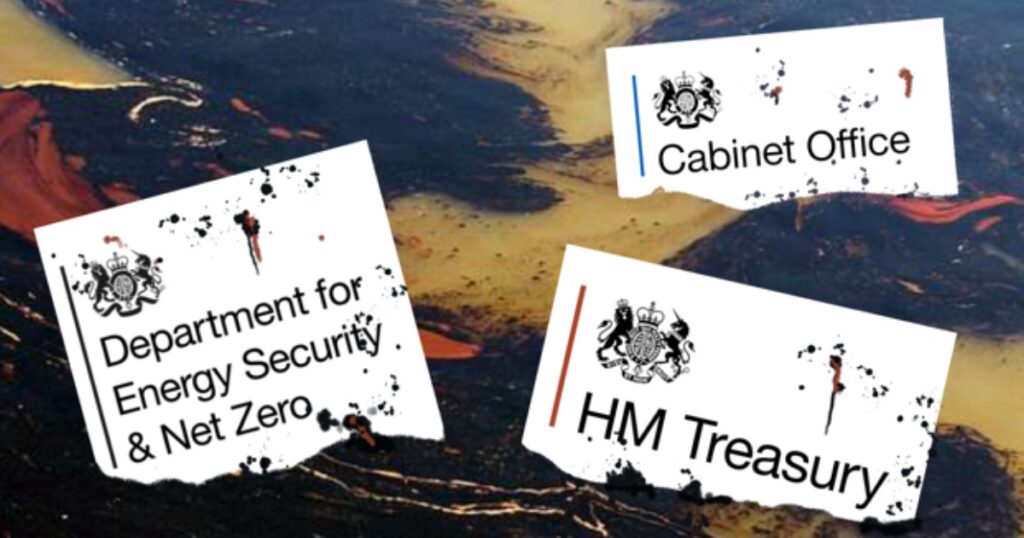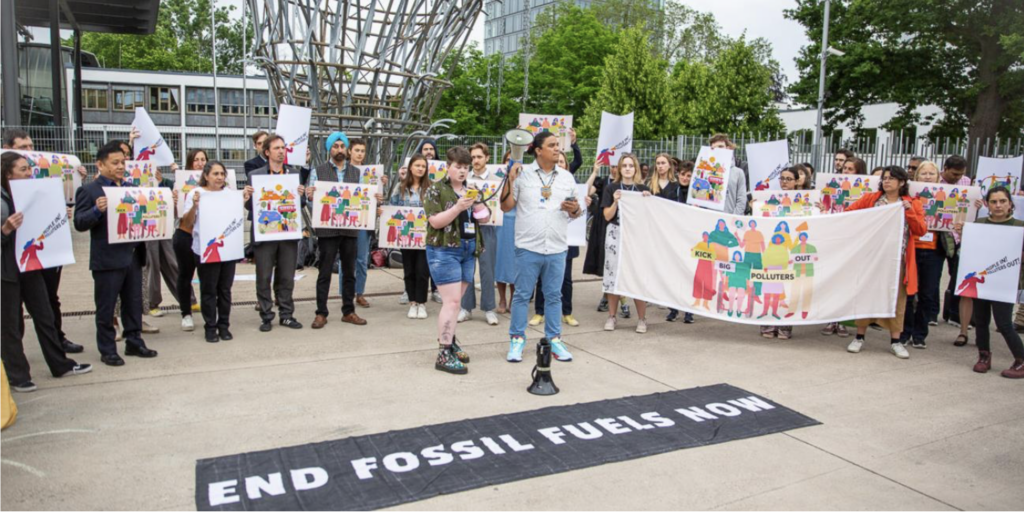Labour ministers met with fossil fuel industry lobbyists 506 times during their first year in government, new analysis by Fossil Free Parliament reveals.
- The fossil fuel industry muscled in on 48% more ministerial meetings in Labour’s first year in government than in 2023, under the Conservatives.
- The Department of Energy Security and Net Zero (DESNZ) met with fossil fuel lobbyists 274 times. Almost a quarter of all meetings had an industry representative present. DESNZ met with union representatives only 61 times.
- Ed Miliband met with fossil fuel industry representatives 91 times. This represents a third of all of his meetings having an industry representative present.
- BP, Shell and Equinor scooped a combined 100 meetings with ministers.
- Fossil fuel lobbyists attended almost every government meeting about the Energy Profits Levy.
16 October – Government ministers met fossil fuel representatives the equivalent of twice every working day in their first year of power, new analysis shows. Full analysis data available here.
Fossil Free Parliament campaigner Carys Boughton said: “Why are fossil fuel lobbyists being handed a backstage pass to government? This is the same industry bankrolling Reform, treating workers ‘like dirt’, and scrapping what were already inadequate renewable energy investments.
These lobbyists should have no place in ministerial meetings about the energy transition, taxing profits or cutting our bills – it’s in their interest to sabotage these talks.”
Increased lobbying risks further eroding the public’s trust in government. 74% of the public believes that Britain is rigged to serve the rich and influential. Capitulating to industry’s calls for special treatment risks further eroding the public’s trust and undermining popular climate action, campaigners argue.
Successive governments have courted industry and compromised the public’s interest: the Conservatives appointed over 100 people from the oil and gas sector to senior government roles; new Labour MPs took over £45,000 from oil and gas lobbyists after the 2024 election. In the US, fossil-fuel industry insiders are increasingly being appointed to key positions in energy and environment policy while Trump actively solicits enormous industry donations.
Oil and gas production chemist, Megan* said: “Corporations like Shell and BP have no moral incentive to work towards a fairer society with good quality jobs. Their only incentive is to increase profits for their shareholders. Prioritising profits has led to dangerous work conditions and significantly lower job security.
“If the Government wants to understand the problems and how to fix them, they need to be talking to the people on the ground who keep things running and are suffering for it – not the industry execs who’ve caused the problems.”
Green Party MP for Bristol Central, Carla Denyer MP said: “Instead of listening to scientists, communities affected by flooding, or parents desperate to secure a safe future for their children and grandchildren, this government is prioritising lobbyists and profits for oil and gas giants.
“These revelations must mark a turn away from the grubby politics of fossil fuel lobbying.”
52 meetings concerned Carbon Capture and Storage (CCS), 35 of which were attended by fossil fuel representatives. But just six of these meetings included union representation. Last year, Labour’s £22 billion CCS pledge followed a surge in industry lobbying.
Exxon Mobil met 10 times with UK Government departments in the period analysed, of which three meetings were to discuss CCS. Exxon has admitted that CCS is ‘simply unproven’ and ‘speculative’. The company has a track record of publicly denying its own research into the dangers of burning fossil fuels. Despite this, ministerial meetings on CCS did not include any independent scientists.
Campaigns Manager at Good Law Project, Katrina McDonnell said: “When fossil fuel companies get special access to ministers, what are they getting in return? Keir Starmer promised a government of service, but that doesn’t mean bowing the knee to corporations making money out of climate catastrophe. It’s time for Starmer to stop cosying up to polluters and put people first.”
The Chartered Institute of Public Relations has called for comprehensive reform, including an expanded register of lobbying activity. 29 MPs have pledged to cut fossil fuel influence out of politics.
Media contact:
Carys Boughton, Fossil Free Parliament campaigner at Platform London
07792767394 | carys@platformlondon.org
Notes and methodology:
Full analysis available here. The Government published information about 10,171 meetings between 1st of July, 2024 and 30th June, 2025. We analysed all data available as of 1 October 2025.
At the time that the analysis was conducted, the Wales Office and the Department for Education had not made their April to June 2025 ministerial meetings data available.
Fossil Free Parliament is a UK-wide campaign tackling the undue influence of the fossil fuel industry on policy development. It is coordinated by climate justice charity Platform London.
*Name changed to protect worker’s anonymity.











